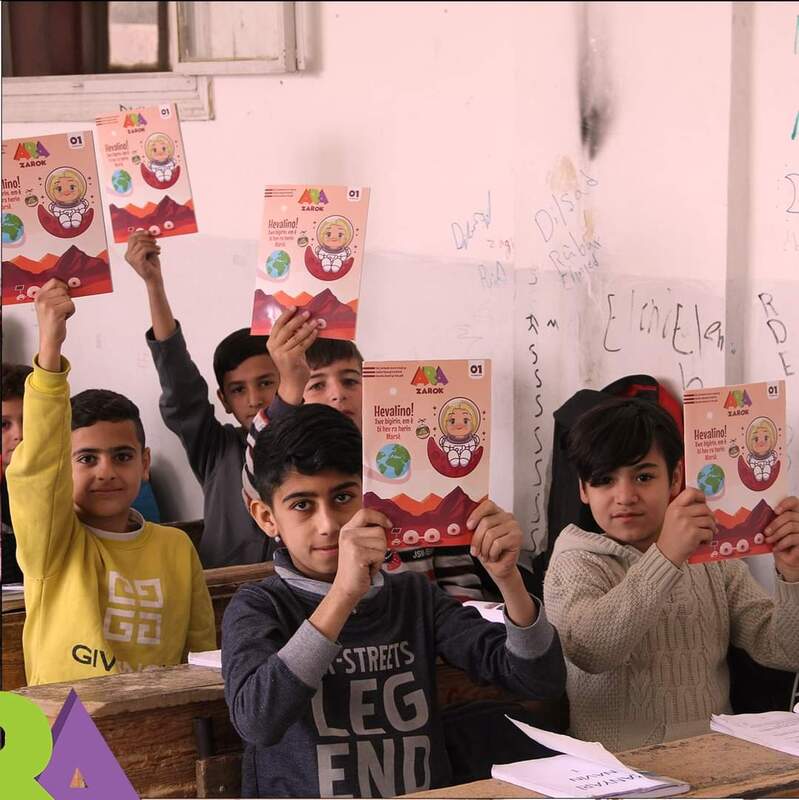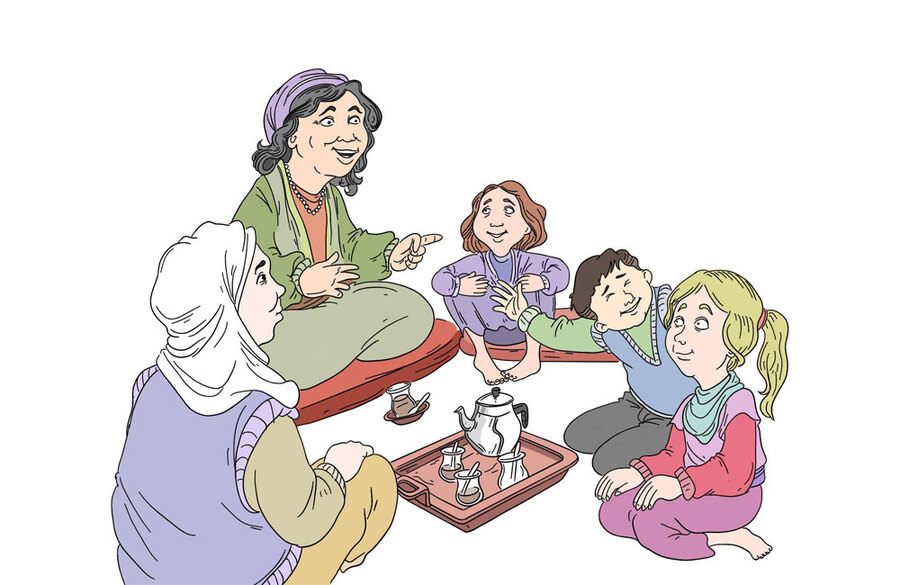Avin Tayfur
Imagination plays a great role in children’s stories. This literary style of children's stories captures children's imagination and has unlimited effects on their minds according to its positive and negative effects. Imagination is a key element in children’s stories. Children's lives are imaginary. According to their imagination, they create a new image of everything around them. Therefore, when a child listen to or read a story, they imagine every event in it, and that imagination will have a huge impact on their life, style, behavior, and nature of life.
Mothers have always tried to tell their children the bedtime stories they heard from their own parents, to put them to sleep, to make them happy, and to teach them something new about life experiences. In our time, many writers and their works have appeared for children and these writers have tried to benefit children with their works.
As much as good stories have a positive impact on children and their imagination, bad stories have as much negative impact on memory, mind, emotions, imagination, and lifestyle and target children's personalities.
For example, stories like “The Frog Who Becomes a Princess” or similar ones systematically affect the way we judge things. However, reading fictional stories and legends, in addition to expanding the imagination, also helps to build children's consciousness.
Here we can ask ourselves the following questions: How negative and how positive were these stories? What impact have these stories had on children’s imagination and how will they impact children’s lives and futures?

Stories play a huge role in the development of children's imagination because they create new ideas for them and their little world that they have never known before. Imagination helps them to be different and creative. Imagination is a gift that must be developed in children so that they can become intelligent people in the future, directors, artists, or have creative and diverse ideas that will help them achieve success in various fields.
In general, no one can deny that although the folk stories told by parents to their children were positive, there are also enough factors that influenced the children’s attitudes and allowed us to see them negatively. At the same time, folk tales that have been translated into texts and written by writers for their children can influence children's imagination.
The negativity of folk tales begins when the author writes works for children without paying attention to their psychology. Also, when parents tell stories or read books to their children without special attention, they are not aware of the extent to which these stories can traumatize children and weaken their imaginations because of fear. It will also affect their future.
Some mothers read princess stories to their children before going to sleep, and these stories have inspired many movies and are a great joy for children, especially girls, but they are full of old thought that is harmful to children. Because most stories like Cinderella, which have been in our minds since childhood contain gender thoughts, can have a bad effect on a child's personality.
The princess has always been trapped and can do nothing until the prince comes and liberates her. Stories like these make children think that girls shouldn’t have anything but beauty and goodness, and learn nothing else. She should also wait for marriage for that man to come and save her. This story can always create a submissive wife in children’s imaginations.
In addition, in the stories, marriage is the greatest reward. These stories have a great impact on children's thinking and make them not love their childhood.
In addition to stories like these, some stories have a great impact on children's imagination and increase fear in them. In the past, parents told their children horror stories to keep them from going out at night and going to bed early, without realizing that these stories would greatly impact their children's future. Here we asked some people over the age of 18 about what they fear and what stories they remember that still accompany them as fears; they responded that stories such as "The Dog Will Eat You, Manjo Wolf, ghost, Naszi, Pirhabok, Wolf with seven heads, etc.
To be continued ...









